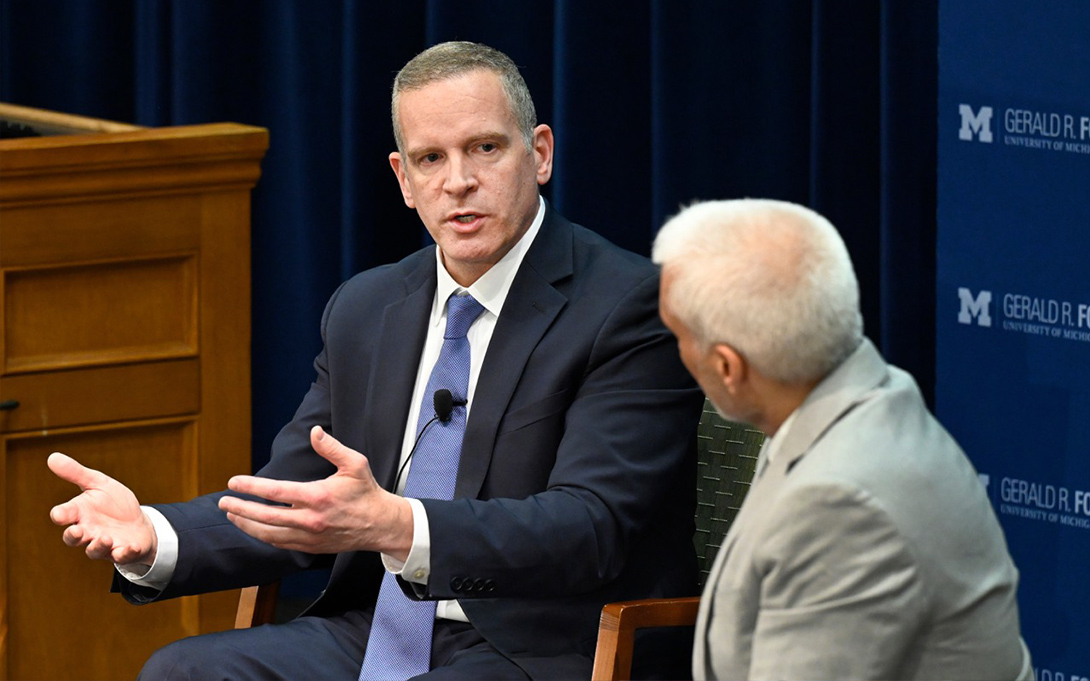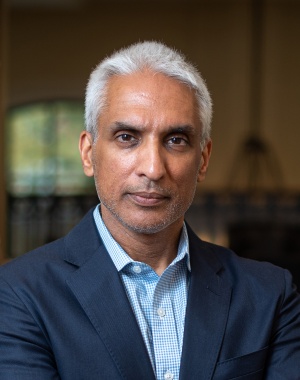
In a wide-ranging conversation, FBI Deputy Director Paul Abbate and Ford School Associate Professor of Practice Javed Ali spoke about the agency’s evolving role in safeguarding U.S. elections, how they have adapted to cyber-security threats, and the importance of interagency partnerships in tackling threats to democracy.
Deputy Director Abbate described 2016 as a “watershed moment … not just for the FBI but for all of the agencies and departments at the federal, state and local level that are engaged [in safeguarding U.S. elections].” When it comes to election security, the FBI’s primary role is to investigate threats before they have an impact, he explained.
The FBI found that in 2016, Russia targeted political candidates, hacked into and leaked content from their emails. The Russian government also covertly used social media to disseminate messages to cause greater divisions between and among people here in the U.S., to spread misinformation and disinformation, to influence toward the outcomes that the Russian government might have sought at that time.
Deputy Director Abbate explained that before 2016, the FBI was focused on addressing “real world type of concerns and threats” such as voter ballot fraud, voter suppression, civil rights violations, and campaign finance violations. He said the FBI had to evolve rapidly and while the FBI continues to address those issues, the focus has expanded to also include cyber attacks on U.S. elections from other countries.
The bureau now collaborates with a variety of stakeholders from local election officials to other federal agencies like the Cybersecurity and Infrastructure Security Agency (CISA), to international allies who experience targeting from similar adversaries.
“Carrying out and [conducting] elections is an individual state and locality responsibility bolstered by some components of the federal government, specifically DHS and CISA and then we’re engaged in security around that in collaboration with many other partners at the state, local, and at the federal level.”
Deputy Director Abbate spoke about the expectation of information sharing when dealing with these threats. For example, the FBI regularly informs data infrastructure platforms when foreign government actors are creating fake social media accounts and informing potential victims that there may be an attempt to hack into their campaign infrastructure.
“It is essential that the entirety of the information necessary to stop the threat is shared with everybody across the board at every level—federal, state, and local.”


